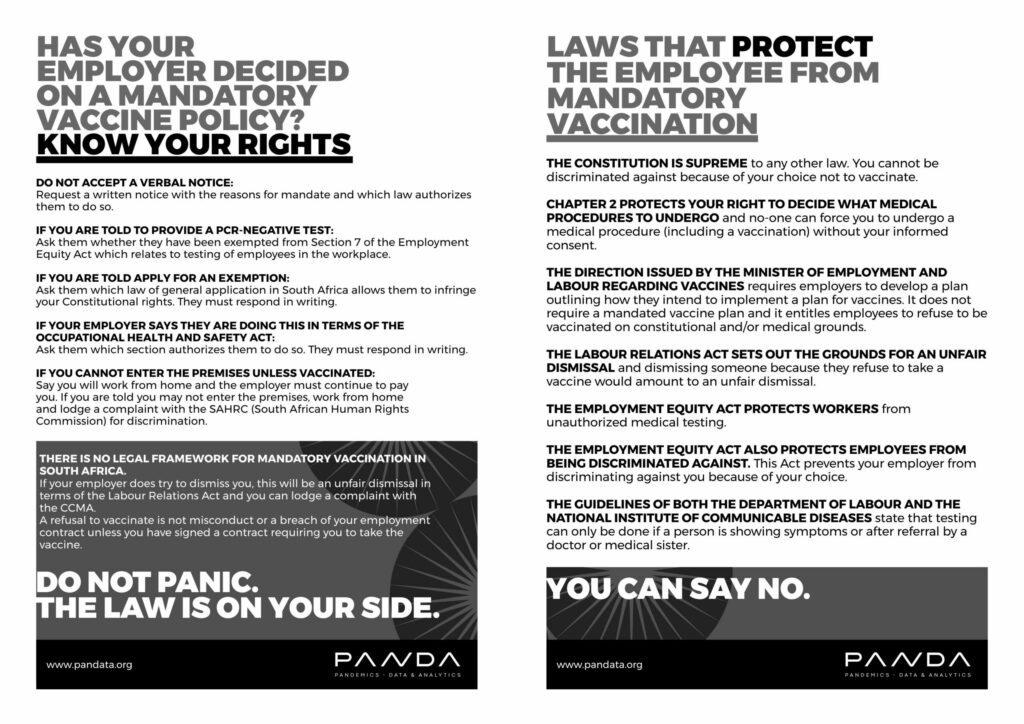1. Has your employer decided on a mandatory vaccine policy? Know your rights.
Do not accept a verbal notice:
Request a written notice with the reasons for mandate and which law authorizes them to do so.
If you are told to provide a PCR-negative test:
Ask them whether they have been exempted from Section 7 of the Employment Equity Act which relates to testing of employees in the workplace.
If you are told to apply for an exemption:
Ask them which law of general application in South Africa allows them to infringe your Constitutional rights. They must respond in writing.
If your employer says they are doing this in terms of the Occupational Health and Safety Act:
Ask them which section authorizes them to do so. They must respond in writing.
If you cannot enter the premises unless vaccinated:
Say you will work from home and the employer must continue to pay you. If you are told you may not enter the premises, work from home and lodge a complaint with the SAHRC (South African Human Rights Commission) for discrimination.
There is no legal framework for mandatory vaccination in South Africa.
If your employer does try to dismiss you, this will be an unfair dismissal in terms of the Labour Relations Act and you can lodge a complaint with the CCMA. A refusal to vaccinate is not misconduct or a breach of your employment contract unless you have signed a contract requiring you to take the vaccine.
Do not panic. The law is on your side.
2. Laws that protect the employee from mandatory vaccination
The Constitution is supreme to any other law. You cannot be discriminated against because of your choice not to vaccinate.
Chapter 2 protects your right to decide what medical procedures to undergo and no-one can force you to undergo a medical procedure (including a vaccination) without your informed consent.
The direction issued by the Minister of Employment and Labour regarding vaccines requires employers to develop a plan outlining how they intend to implement a plan for vaccines. It does not require a mandated vaccine plan and it entitles employees to refuse to be vaccinated on constitutional and/or medical grounds.
The Labour Relations Act sets out the grounds for an unfair dismissal and dismissing someone because they refuse to take a vaccine would amount to an unfair dismissal.
The Employment Equity Act protects workers from unauthorized medical testing.
The Employment Equity Act also protects employees from being discriminated against. This Act prevents your employer from
discriminating against you because of your choice.
The guidelines of both the Department of Labour and the National Institute of Communicable Diseases state that testing can only be done if a person is showing symptoms or after referral by a doctor or medical sister.
You can say no.





